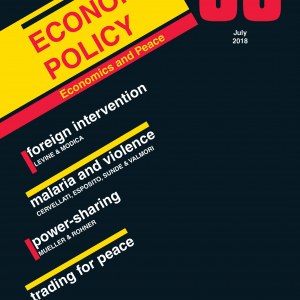
Beetsma, R., Burgoon, B., Nicoli, F., \de Ruijter\, A. and Vandenbroucke, F. (2022). What kind of EU fiscal capacity? Evidence from a randomized survey experiment in five European countries in times of corona Economic Policy, 37(111):411--459.
-
Affiliated author
-
Publication year2022
-
JournalEconomic Policy
Based on a conjoint survey experiment, we explore the support among European citizens for a European Union (EU) budgetary assistance instrument to combat adverse temporary or permanent economic shocks hitting Member States. Suitably designed, there is substantial support for such an EU instrument generally and across the sample countries. Support is broader when budgetary support is conditional on debt reduction in good times and on monies being spent in specific policy areas, in particular healthcare and education. Support also increases when there is a role for the European Commission in terms of monitoring and providing guidance. However, there is little support for policy packages that terminate a programme and impose fines in the case of non-compliance. Further, there is broad acceptance of programmes that entail long-run redistribution towards poorer countries. Financing the assistance through a progressive tax increase is more popular than through a flat tax increase. In general, there is substantial scope for constructing assistance packages that command majority support in all sample countries, particularly if programmes have spending conditionality and progressive tax financing.